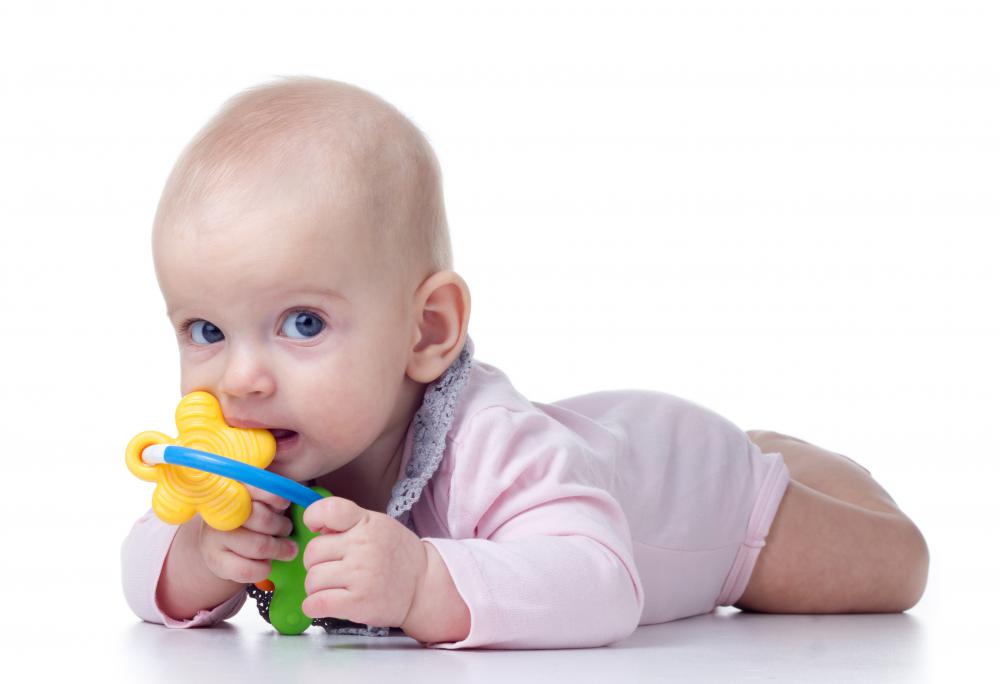At WiseGEEK, we're committed to delivering accurate, trustworthy information. Our expert-authored content is rigorously fact-checked and sourced from credible authorities. Discover how we uphold the highest standards in providing you with reliable knowledge.
What are the Different Signs of Baby Teething?
There are various signs of baby teething; above all, babies often appear irritable and fussy. Teething causes discomfort and pain because the first set of teeth must break through the gums. That pain often causes babies to cry and whine more than normal, and they may have a more difficult time going to sleep at night. Babies often drool quite a bit during teething, and tend to gnaw or chomp down on various objects, including their own hands. Some experts and parents contend that signs of baby teething also include cold-like symptoms, such as fever, runny noses, and even diarrhea.
There's little question that teething is uncomfortable. Adults who have dealt with the discomfort of something such as a wisdom tooth coming in can attest to that. Babies will feel discomfort on the gums at a new tooth's point of entry. That discomfort may cause them to become irritable.

New parents who have exhausted the list of what may be the matter with their crying baby might consider that the child is dealing with a new tooth. If it's possible to get the child to open his or her mouth, it's worth a look to see if one can spot any teeth just below the surface of the gum. If there are, the pain can be treated with over-the-counter analgesics made specifically for teething children.

Other signs of baby teething are children who gnaw on objects, or can be seen gnawing on their own gums. Various toys are manufactured specifically for children to teethe. It's important to make sure that such toys are not a chocking hazard, however. Often, teething toys also are designed for refrigeration, which can provide some cool relief to sore gums.
Many contend that excessive drooling is one of the biggest signs of baby teething. Drooling is usually accompanied by excessive gnawing on objects. If the drooling is severe enough, it can cause a rash around the mouth and nose.

Puffy, swollen gums may also be one of the signs of baby teething. It's important for parents to not assume that swollen gums only indicate teething, as irritated gums can be a sign of something more severe, such as gum disease. If a child has swollen gums, a doctor should be consulted.
Some believe that teething can cause babies to develop fevers as well as diarrhea and runny noses. Doctors disagree about whether or not these particular symptoms actually indicate teething, as there isn't any strict scientific evidence to prove the claim. As with swollen gums, a fever is something that should be seen by a medical professional, as a fever in small children can quickly progress into a serious and potentially fatal problem.
AS FEATURED ON:
AS FEATURED ON:















Discuss this Article
Post your comments